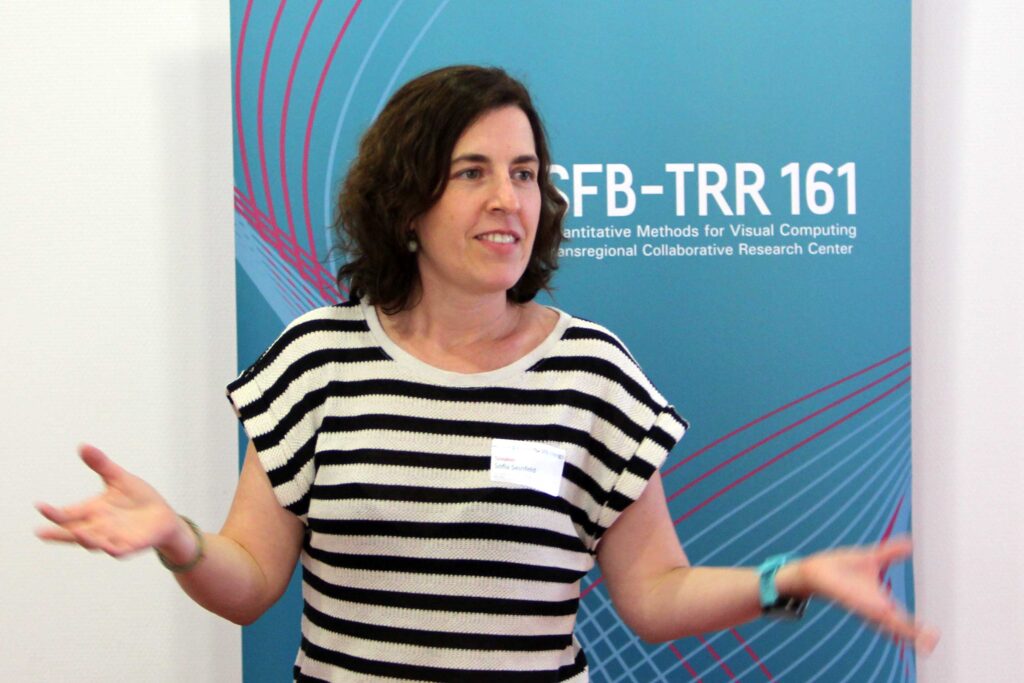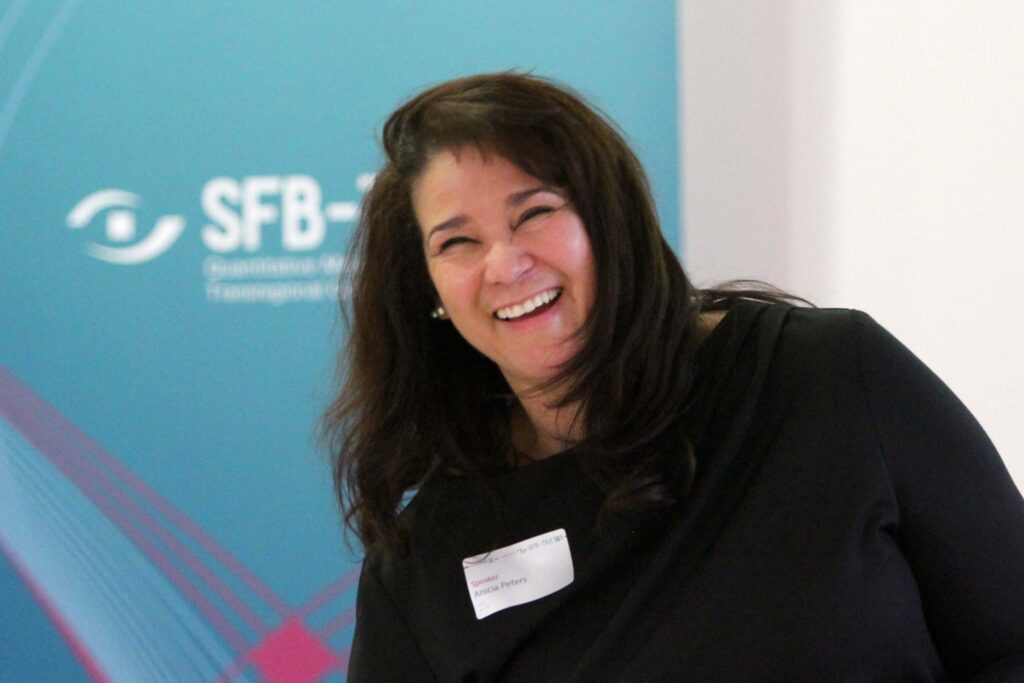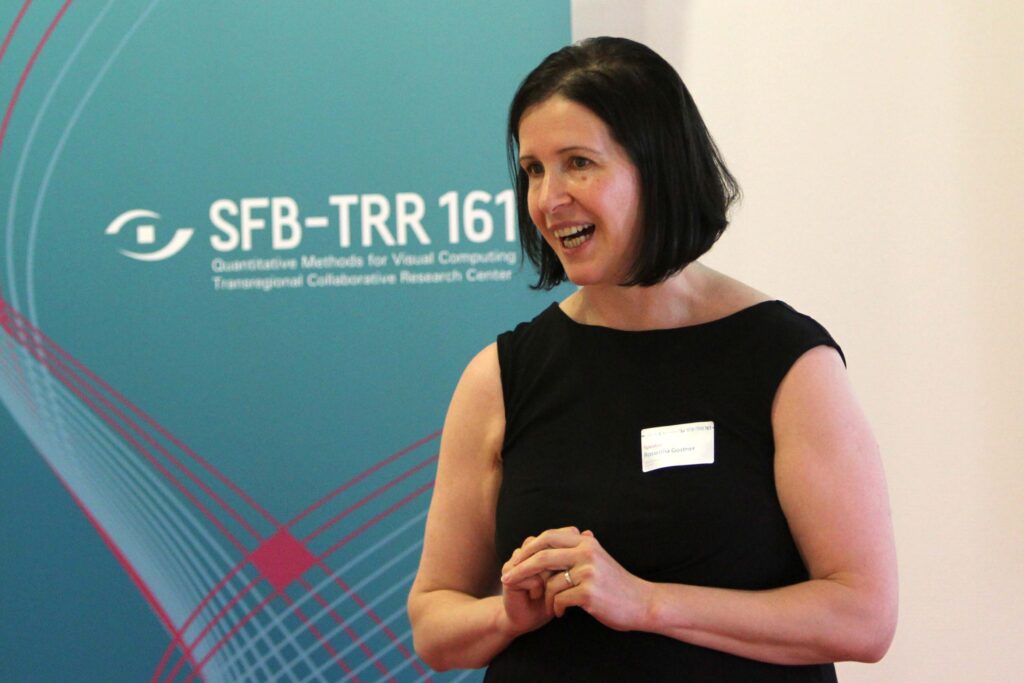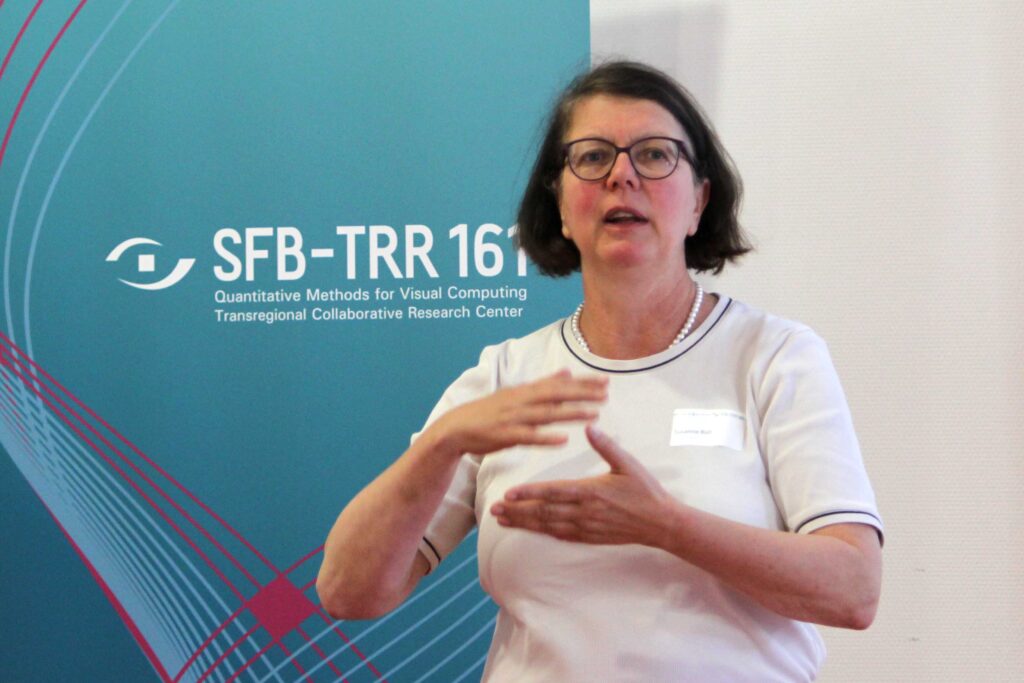This year’s fourth edition of our successful workshop-series about Women* in Computing took place on the 11th of July, 2025 in Ulm, hosted by Marc Ernst, SFB-TRR 161 project C05, and his team. 40 researchers from different universities, companies and even continents attended our event.
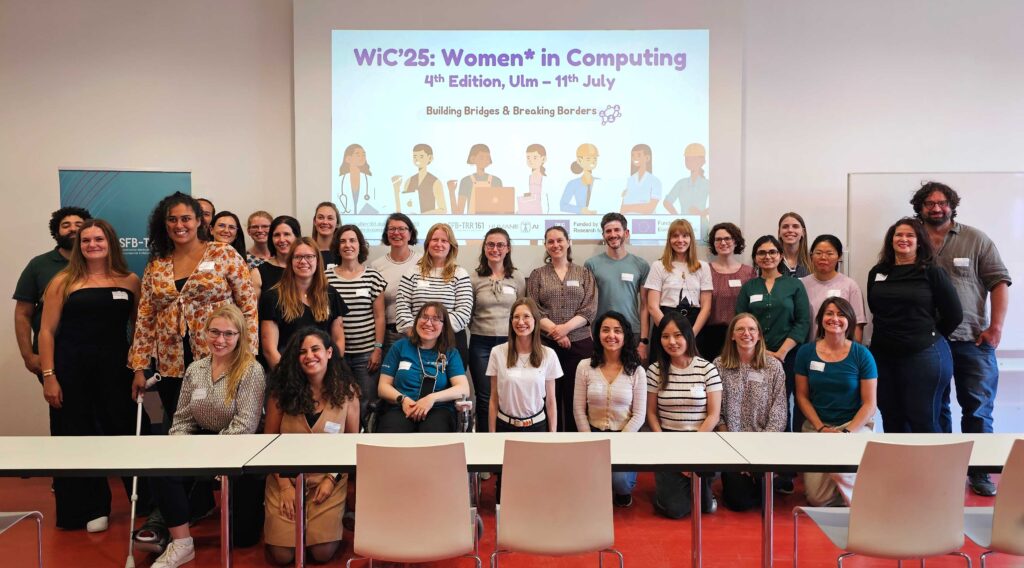
While the workshop is from, with and about Women in computing, everyone interested is welcome to participate and one of our (male) attendees nicely summarized his experience on LinkedIn:
“Wait, why would you go to a Women* in Computing workshop, Michael?”
I was asked this question, and I also wondered myself before joining the event. I’m glad I did.
Admittedly, I sometimes felt like eavesdropping, hearing the attendees talk about their experiences, as I’m not the core audience. Although I’m well aware of gender inequity, it is eye-opening to hear firsthand how women still face sexist comments at work, get overlooked in promotions, are reduced to the quota woman, wonder why they’re the only woman at a meeting, and must fight systematic gender discrimination.
I’m really glad I joined and listened. I felt warmly welcomed. In hindsight, I’m not wondering if my attendance was appropriate, but rather believe that many men would benefit from joining these spaces to listen and understand. The workshop yesterday was full of great talks, honest stories, open-minded networking – and incredibly much food. […]
This year, we again had an amazing line-up of female speakers from academia and industry. They reflected on their personal journeys, moving between countries, building their networks and shaping the future for other female researchers in this world.
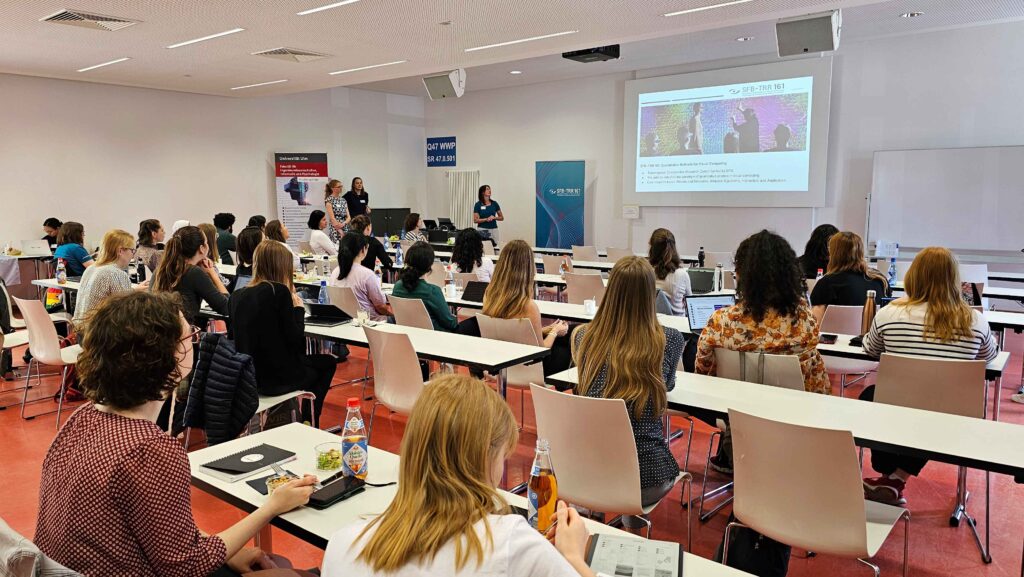
We kicked the event off with an inspiring presentation by Sofía Seinfeld from Universitat Oberta de Catalunya in Spain. In her talk “From Virtual Realities to Real Life: Building a Career Across Borders and Fields” she shared her motivations for moving to completely unknown countries and motivated us to take the leap, as it helps us grow personally and academically. She highlighted that we should strive for creating a good interdisciplinary network by demonstrating how it enables her to do meaningful research that addresses real world problems.
Next, we had Anicia Peters from National Commission on Research, Science and Technology (NCRST) of Namibia, who allowed us very personal glimpses into her life with her talk “Borderless: Redefining the Narrative for Women in HCI-AI and Global Representation.” She told us about her experiences, ranging from growing up in Namibia during Apartheid, to pursuing a PhD while having a family, to moving to the states and back, to being the only woman in many meetings, and now pushing forward to shape the future of Computing, HCI and AI in Namibia and the whole of Africa. She also taught us that a network of supporters and sponsors is key and “we should look out for partners that support us and our visions.”
After a coffee break full of networking, exchanging experiences and stories, we continued with our second set of talks.
Rose (Roswitha) Gostner from ZEISS Digital Innovation shared her personal experiences in her talk “Finding Your Compass: Navigating from Academia to Industry.” After we learned about the many parts of our daily lives where we encounter ZEISS technology , she talked about her life, moving from Italy to the UK, spending time in the States, moving back, and now being at ZEISS. While also sharing stories about stressful situations with visas and how to balance family and career, she highlighted how valuable these experiences are to her. One key take-away of her talk is certainly: listen to your gut when making decisions.”
Lastly, we were very lucky that Susanne Boll from OFFIS stepped in to replace a last-minute cancellation, and delivered an inspiring talk on how policy and the will to change something can actually lead to more women in tech. Her talk “25 in 2025: A corporate strategy to increase the proportion of women scientists at the OFFIS Institute for Information Technology” outlined how they decided at OFFIS that more women are needed and which steps they took in order to reach their goal. She presented very impressive numbers, how they succeeded in reaching at least 25 % female employees in nearly all sections, but she also pointed out that this requires a united front and continuous effort in realigning strategies to stay on track.
The talks were followed by group discussions about many topics related to careers in computing. The event finished with a visit and lab tour with impressive research demos at the Human-Computer Interaction research group of Enrico Rukzio, which provided further room for exchange, networking, and discussions.
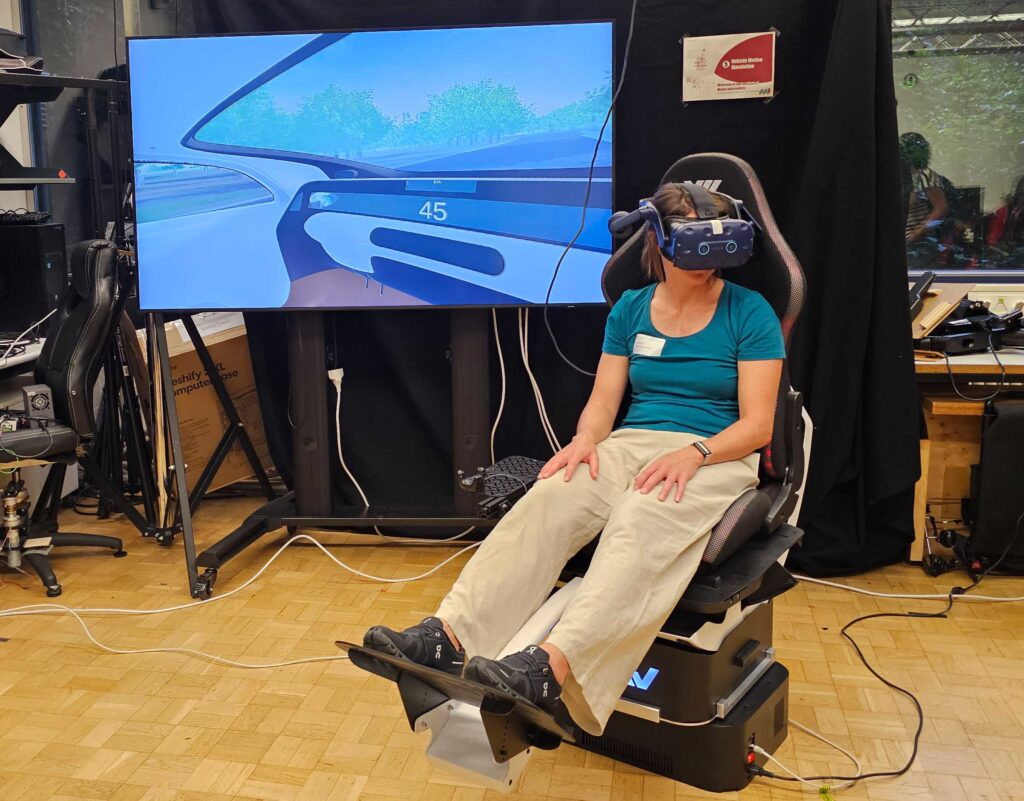
The Women* in Computing Workshop was supported by the SFB-TRR 161 and endorsed by the Humane AI Net, the European network of Human-Centered artificial intelligence. After a successful fourth event, a fifth edition is planned for 2026.

